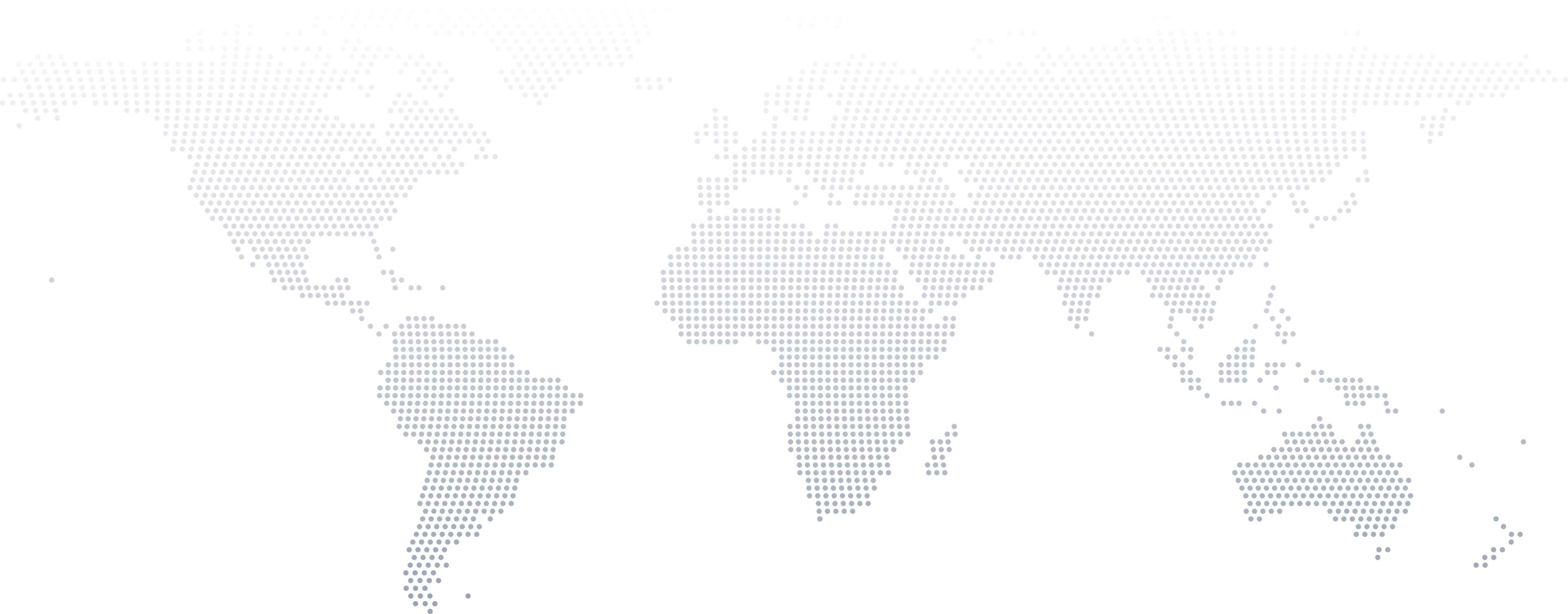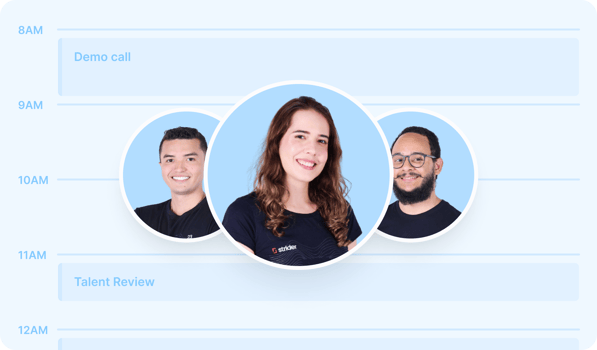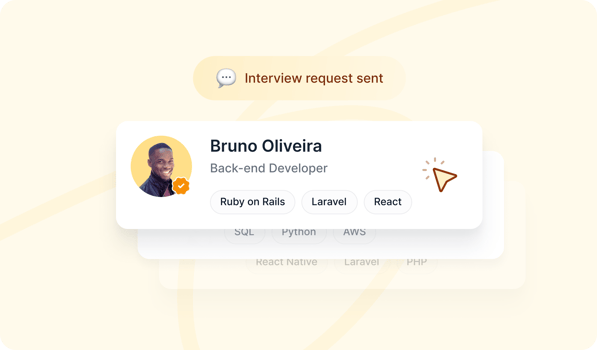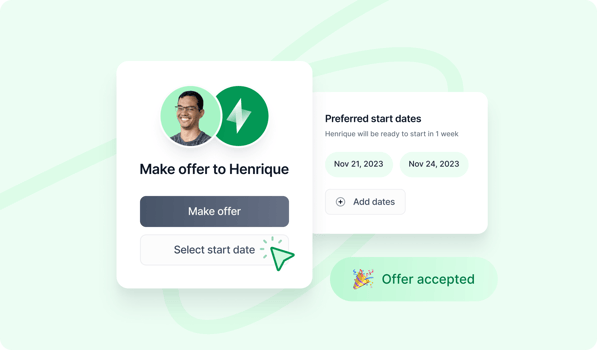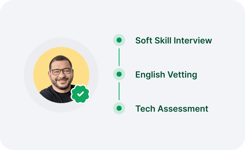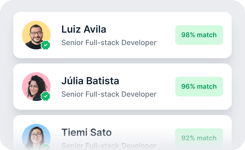Hire Remote PostgreSQL Developers
PostgreSQL is a popular open-source relational database management system (RDBMS) that provides a robust set of features for data management. It is used by many industries and companies worldwide. As a result, there is a growing demand for skilled PostgreSQL developers who can develop and manage databases, build software solutions, and develop cloud-based platforms.
Hiring the right PostgreSQL developer is crucial for any project, and it requires a well-defined process to ensure that you find the right person with the right skills and expertise. It is essential to look for developers with extensive experience in PostgreSQL development and familiar with SQL-compliant databases, stored procedures, and procedural languages. This article will explore candidate sourcing and provide interviews and common questions about hiring PostgreSQL developers.
What to look for when hiring PostgreSQL Developers
PostgreSQL is a powerful open-source relational database management system that has recently gaining popularity. If you are looking to hire PostgreSQL developers, there are several things you should consider to ensure you find the right person for the job.
Technical skills
PostgreSQL developers should have a deep understanding of the database and its features. They should be proficient in SQL and be familiar with stored procedures and triggers. They should also be experienced in designing, developing, and knowing object-relational databases. A skilled PostgreSQL developer should be comfortable working with programming languages like Python, Java, and Ruby. They should also have experience working with cloud solutions and high-availability environments.
Stored procedures are an essential part of PostgreSQL development. A skilled developer should be able to create and execute stored procedures effectively. Additionally, a PostgreSQL developer should know the procedural languages used to write functions and stored procedures.
When hiring PostgreSQL developers, it is essential to ensure that they have extensive experience working with databases. Look for developers who have worked on projects that involve extensive data warehousing and online transaction processing. A top PostgreSQL developer should also have experience in new feature development and understand the latest technologies and tools used in database development.
Communication skills
In addition to technical skills, a PostgreSQL developer should possess strong communication skills. They should be able to communicate complex technical concepts to non-technical stakeholders. They should also be able to work well in a team environment and collaborate with other developers, project managers, and clients. The ability to multitask and manage multiple projects is also essential for a PostgreSQL developer.
When interviewing PostgreSQL developers, it is essential to assess their soft skills. Look for candidates who have experience working with clients from many industries and have demonstrated an ability to communicate effectively with technical and non-technical stakeholders. Additionally, look for developers with experience working in a team environment who can work well under pressure.
Database design
Database design is an essential aspect of PostgreSQL development. When hiring a PostgreSQL developer, look for someone with expertise in database design. They should have a solid understanding of data structures and be able to design feature-rich, easy-to-use, and maintain databases. Additionally, they should be familiar with SQL-compliant databases and be able to design ACID-compliant databases.
When evaluating candidates for a PostgreSQL development position, look for those with a strong computer science background and database design experience. Consider their professional experience working with PostgreSQL and their ability to develop databases that support a wide range of business requirements. A dedicated PostgreSQL developer should have extensive experience in developing and managing databases and be able to provide digital solutions that meet the needs of their clients.
Project Experience
When hiring PostgreSQL developers, looking for developers with experience working on projects similar to yours is essential. Look for developers who have worked on PostgreSQL development projects, online transaction processing, object-relational databases, and large data warehousing projects. It's also a good idea to ask about their experience developing and implementing new features in PostgreSQL.
Developers with experience in PostgreSQL development can effectively design, develop, and maintain PostgreSQL databases. They should be able to write efficient SQL queries and use PostgreSQL's advanced features to optimize performance. Additionally, they should have experience creating stored procedures, triggers, and views to automate business logic and improve application performance.
Top 5 PostgreSQL Developer Interview Questions
When hiring PostgreSQL developers, asking the right questions is vital to ensure you're hiring the right person for the job. Here are the top 5 interview questions that you should consider asking:
Explain the role of table space in PostgreSQL.
This question tests a candidate's understanding of PostgreSQL database management systems. PostgreSQL stores data in files, which are organized into table spaces. Table spaces are used to control where data is stored on disk, and they provide a way to manage disk space usage.
A possible answer to this question is that table space is a logical storage unit within PostgreSQL that stores data related to tables, indexes, and other database objects. It helps manage disk space utilization and can back up or restore specific database objects.
What is the procedure for storing binary data in PostgreSQL?
Binary data is often used to store images, videos, and other multimedia files in PostgreSQL. This question can help hiring managers determine a candidate's experience in PostgreSQL development.
A possible answer is that PostgreSQL stores binary data using a bytea data type. The file is read into memory to store binary data and then converted to a bytea type. The bytea data is then stored in the database as a binary string.
How can you stop a PostgreSQL Server? Can you stop a particular database in the PostgreSQL cluster?
This question can help you evaluate a candidate's experience managing a PostgreSQL database. A PostgreSQL developer must know how to stop the server or a specific database in the cluster.
A possible answer is that there are several ways to stop a PostgreSQL server. The easiest way is to use the pg_ctl utility to stop the server. To prevent a particular database in the PostgreSQL cluster, you can use the DROP DATABASE command.
Explain About Concurrency With The Help Of Mvcc.
This question can help you determine a candidate's understanding of concurrency control in PostgreSQL. Multi-Version Concurrency Control (MVCC) is the primary method PostgreSQL uses to ensure high concurrency levels while maintaining data integrity.
A possible answer is that MVCC is a concurrency control mechanism that allows multiple transactions to access the same data simultaneously without interfering with each other. MVCC creates a snapshot of the database at the beginning of each transaction, and then each transaction works with its snapshot.
What Are The Various Enhancements To The Straight Relational Data Model By Postgresql?
This question can help you determine a candidate's knowledge of the PostgreSQL database and its features. PostgreSQL is known for its feature-rich database management system, and this question can help you identify candidates with experience working with its advanced features.
A possible answer is that PostgreSQL provides several enhancements to the straight relational data model, including support for object-relational data, stored procedures, procedural languages, and many others. These enhancements make managing and manipulating complex data structures easier and provide powerful tools for developing robust database solutions.
